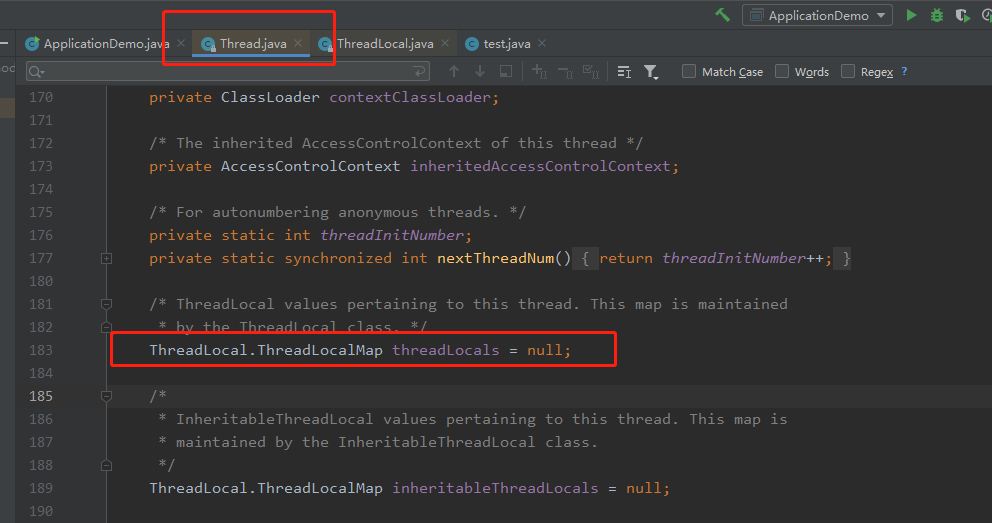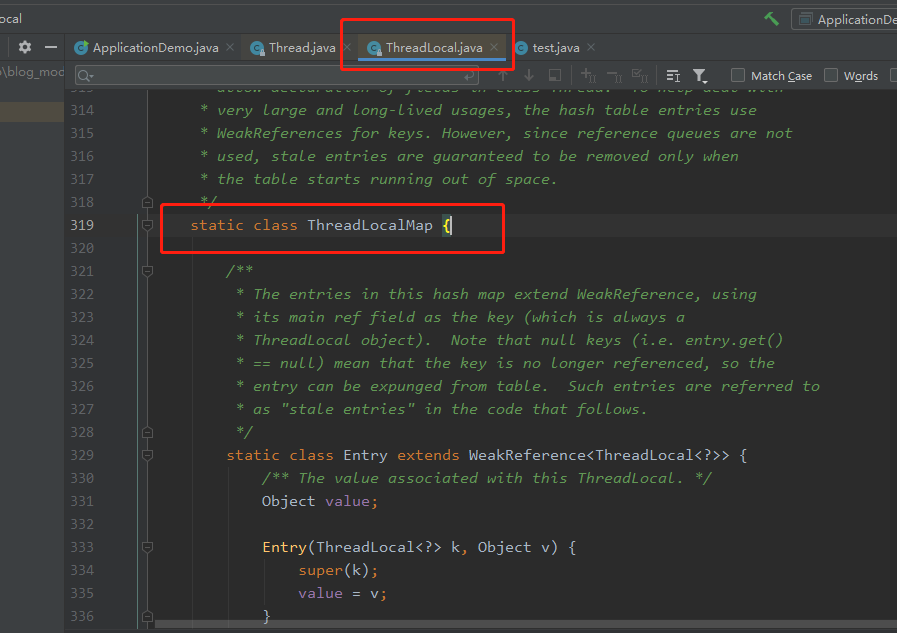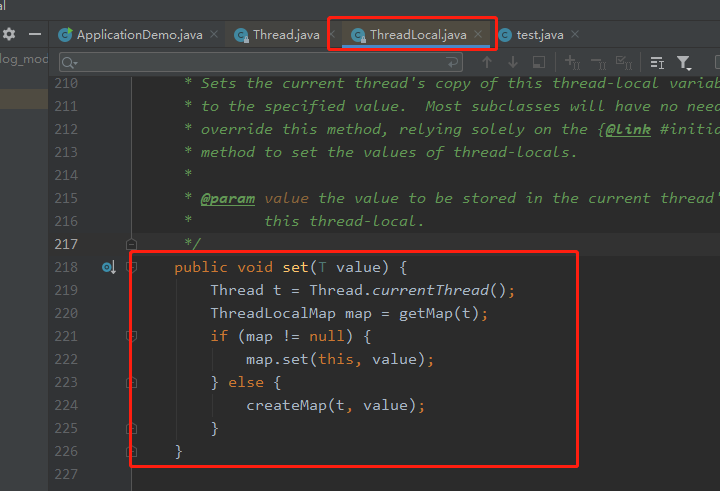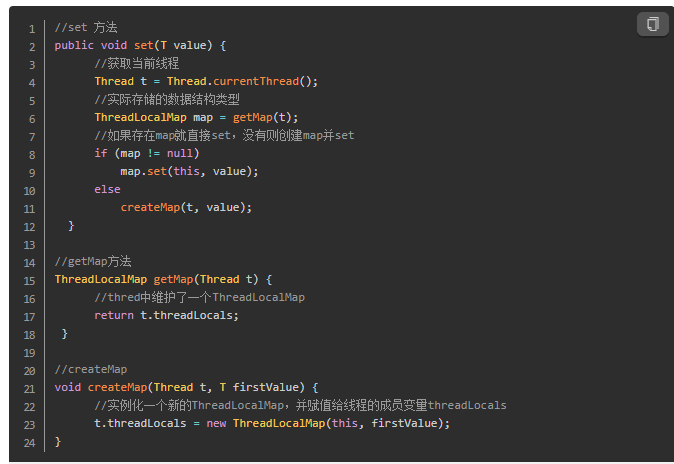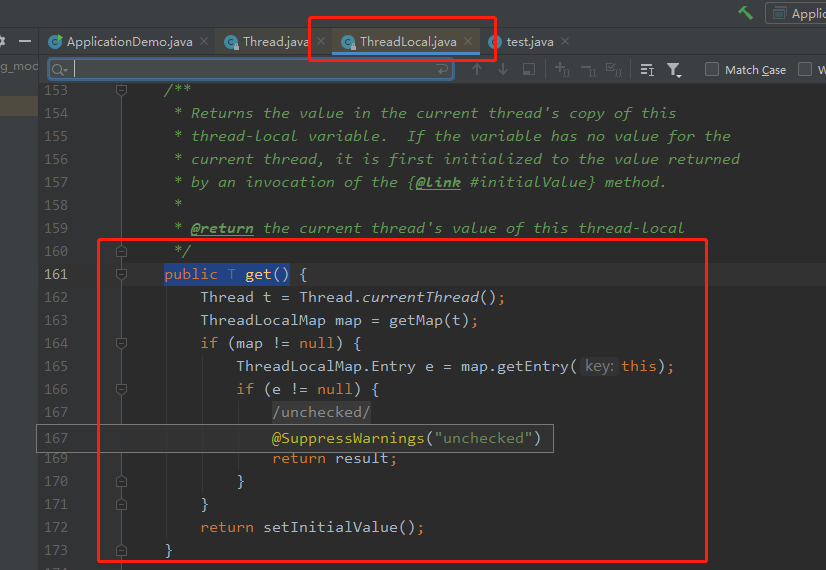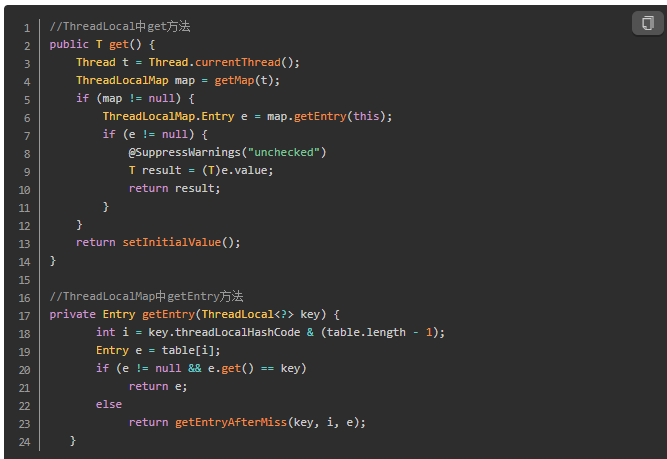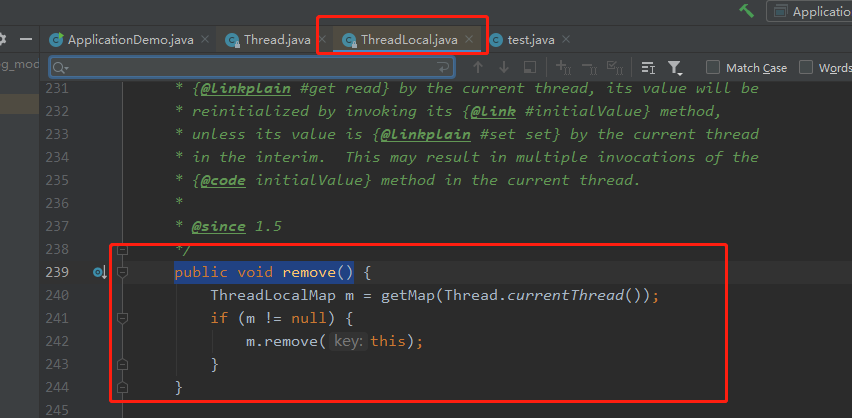1
2
3
4
5
6
7
8
9
10
11
12
13
14
15
16
17
18
19
20
21
22
23
24
25
26
27
28
29
30
31
32
33
34
35
36
37
38
39
40
41
42
43
44
45
46
47
48
49
50
51
52
53
54
55
56
57
58
59
60
61
62
63
64
65
66
67
68
69
70
71
72
73
74
75
76
77
78
| public class Solution {
private static ThreadLocal<String> threadLocal_1 = new ThreadLocal<>() {
@Override
public String initialValue() {
return "initialVal_1";
}
}
private static ThreadLocal<String> threadLocal_2 = ThreadLocal.withInitial(() -> "initialVal_2");
public static void method() {
Thread td_1 = new Thread(() -> {
threadLocal_1.set("td_1_threadLocal_1");
threadLocal_2.set("td_1_threadLocal_2");
System.out.ptintln("td_1_threadLocal_1: " + threadLocal_1.get());
System.out.println("td_1_threadLocal_2: " + threadLocal_2.get());
threadLocal_1.remove();
threadLocal_2.remove();
System.out.println("after remove, threadLocal_1: " + threadLocal_1.get());
System.out.println("after remove, threadLocal_2: " + threadLocal_2.get());
});
Thread td_2 = new Thread(() -> {
threadLocal_1.set("td_2_threadLocal_1");
threadLocal_2.set("td_2_threadLocal_2");
try {
Thread.sleep(2000);
} catch(InterruptedException e) {
e.printStackTrace();
}
System.out.println("after sleep 2000ms, td_2_threadLocal_1: " + threadLocal_1.get());
System.out.println("after sleep 2000ms, td_2_threadLocal_2: " + threadLocal_2.get());
threadLocal_1.remove();
threadLocal_2.remove();
System.out.println("after remove, threadLocal_1: " + threadLocal_1.get());
System.out.println("after remove, threadLocal_2: " + threadLocal_2.get());
});
td_1.start();
td_2.start();
}
}
|
